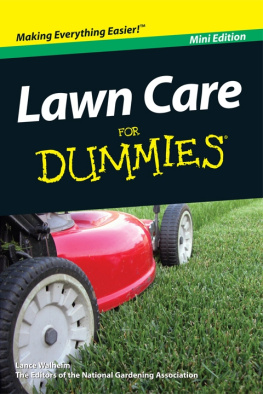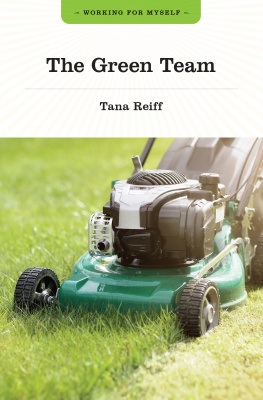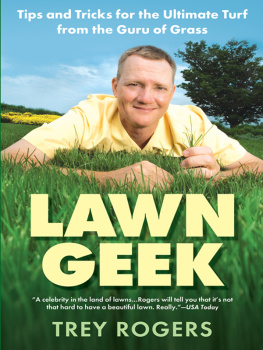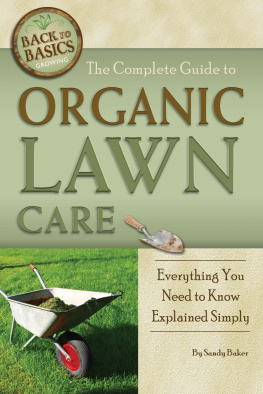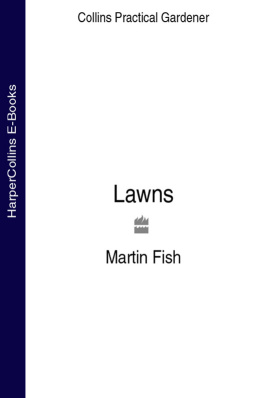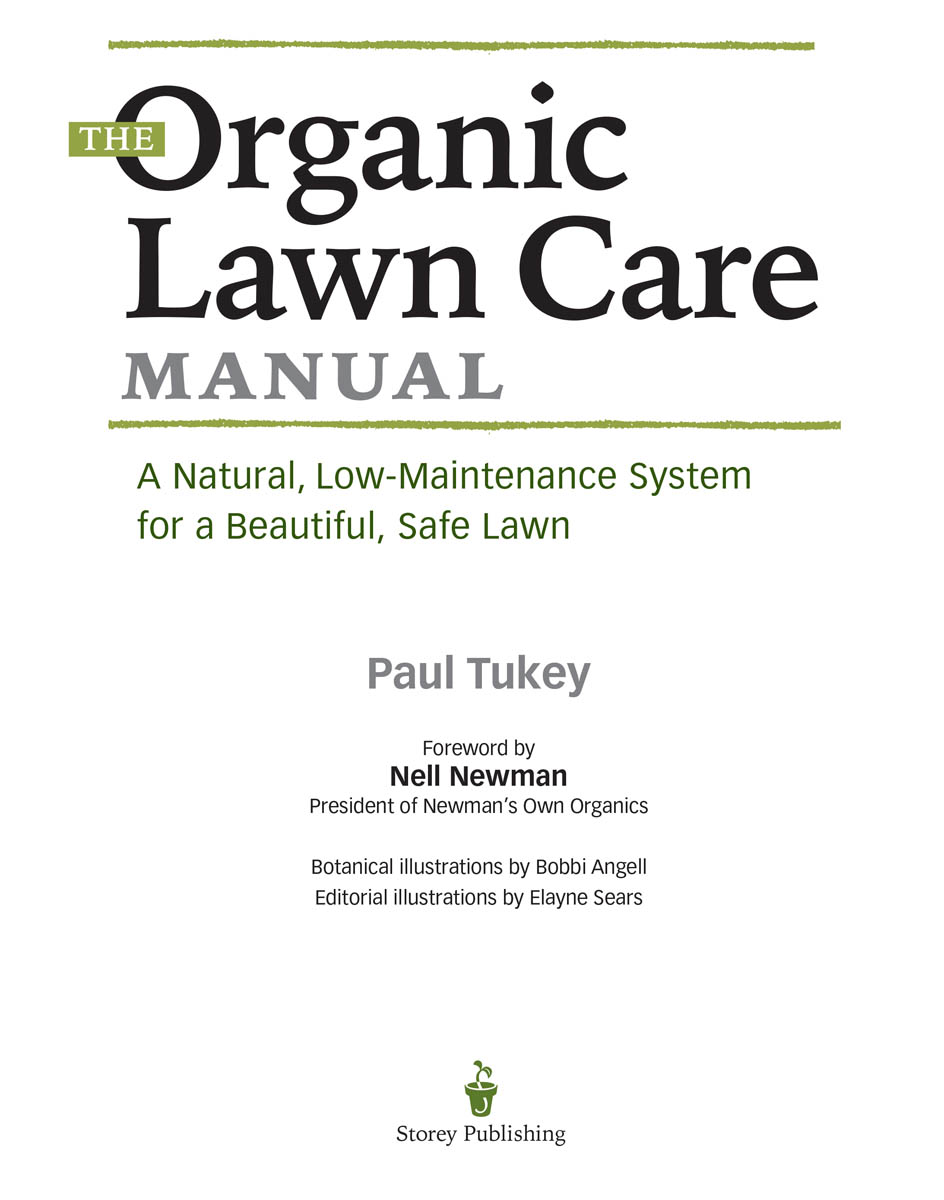To my mother, Charlotte, the fertile soil so full of life
To Katie, my sunshine
And to Christina, Duke, and Aimee, my roots
The mission of Storey Publishing is to serve our customers by publishing practical information that encourages personal independence in harmony with the environment.
Edited by Carleen Madigan
Art direction by Mary Winkelman Velgos
Cover design by Kent Lew
Text design and production by Mary Winkelman Velgos and Kristy L. MacWilliams
Indexed by Susan Olason, Indexes & Knowledge Maps
Cover Photography Image Source/Getty Images
Back Cover Photography John Ewing, bottom; Adam Mastoon, top
Interior Photography Scott Calhoun/Zona Gardens: all except top right
Illustrations Bobbi Angell, pages
2007 by Paul Boardway Tukey
Ebook production by Kristy L. MacWilliams
Ebook version 2.0
March 28, 2016
All rights reserved. No part of this book may be reproduced without written permission from the publisher, except by a reviewer who may quote brief passages or reproduce illustrations in a review with appropriate credits; nor may any part of this book be reproduced, stored in a retrieval system, or transmitted in any form or by any means electronic, mechanical, photocopying, recording, or other without written permission from the publisher.
The information in this book is true and complete to the best of our knowledge. All recommendations are made without guarantee on the part of the author or Storey Publishing. The author and publisher disclaim any liability in connection with the use of this information. For additional information please contact Storey Publishing, 210 MASS MoCA Way, North Adams, MA 01247.
Storey books are available for special premium and promotional uses and for customized editions. For further information, please call 1-800-793-9396.
Library of Congress Cataloging-in-Publication Data
Tukey, Paul Boardway.
The organic lawn care manual : a natural, low-maintenance system for a beautiful, safe lawn. / Paul
Boardway Tukey.
p. cm.
Includes bibliographical references and index.
ISBN 978-1-58017-649-1 (pbk. : alk. paper)
ISBN 978-1-58017-655-2 (hardcover : alk. paper)
1. Lawns. 2. Organic gardening. I. Title.
SB433.T74 2007
635.9647dc22
2006033373
Contents
Foreword
I consider myself to be one of the lucky ones; Ive always felt connected to our earth and able to live in harmony with it. My mother, an early environmentalist, was a big influence for me. We recycled and had apple trees and kept a couple of chickens. There was a river near my house in Connecticut, and, growing up, Id run through the woods with my fishing rod, our pack of dogs following, and Id fish and bird-watch all day. The natural world was always part of my life, part of my awareness.
My interest in organic products probably also stems from the fact that I was something of an ornithologist early on. I was fascinated by birds as soon as I could walk. I read about the peregrine falcon and was amazed by its qualities, including the fact that it can stoop at up to two hundred miles per hour. Of course, in my studies I also learned that the use of DDT has made falcons extinct east of the Mississippi. Thats a mind-boggling concept for a little kid extinction.
These days, disturbing environmental facts can still boggle the mind and hit very close to home. I have friends with mercury poisoning, probably acquired by eating fish caught in contaminated waters. Bird and insect populations are waning, due at least partially to the pesticides people put on their lawns and gardens in the interest of creating beauty. In an age when we know fossil fuel resources are very limited, North Americans use on average the equivalent of eighteen gallons of gasoline maintaining their lawns each year. For many people, pursuing the perfect lawn appears to be an obsession. Good people who are making unfortunate decisions about tending their grass are contributing to air and water pollution, global warming, and, especially, compromised human and animal health.
As credible scientists make direct links between higher rates of childhood cancers and increased use of lawn pesticides, I hope that every state develops laws at least as restrictive as those in Connecticut, where it is illegal to apply pesticides near schools and day care centers. Given that veterinarians have proof that lawn chemicals are partly responsible for a 30 to 40 percent increase in the mortality of dogs and cats, I cant imagine why any of my fellow dog owners would ever risk using chemicals on their lawns.
This is where The Organic Lawn Care Manual can help. Author Paul Tukey gently educates us about a better way to care for our lawns: Using organic methods, we can still achieve great results. In addition to giving us a great deal to think about, he gives us the tools to be successful.
Its an approach that will work. I know that early on, my dad was skeptical about organic products and methods. In 1992, during Thanksgiving in Connecticut, I decided the proof was in the pudding: Without telling him, I arranged for an organic farm in California to ship to me a three-pound box of organic salad greens, peas, and potatoes, and I managed to find an organic turkey as well. I made Thanksgiving dinner exactly the way Dad loves it but with all organic ingredients. Only when he had wiped his plate clean did I ask, So, how did you like your organic meal, Pa? And he got the picture, which convinced him that organics could really take off.
And it can all begin with how we care for our lawns.
Nell Newman
President of Newmans Own Organics
Preface
It has long been said we learned everything we needed to know in kindergarten, yet I suspect many of us still spend most of our lives trying to figure it out anyway. I know I have.
I often joke that Ive been at a disadvantage since I grew up in an era the 60s in the state of Maine, where kindergarten was not a prerequisite for first grade. My journey in life began on a dairy farm in the small town of Bradford, where my hero was my grandfather, a sixth-grade graduate named Henry VanDyne, who milked cows and hayed fields for his livelihood. My heroine was his wife, Clarida VanDyne, who grew all the familys food and for whom store-bought was a scornful phrase. By requirement, I rode with Gramp to the fields to align his tractors with their trailers, and I shoveled out manure from his cows stalls. I lugged Grams swill pails to the garden and planted her peas and beans. By the time I was 10, I was mowing the lawn and running the Trojan horse (our Troy-Bilt tiller).
Amusement, in those days, was seasonal and simple. Summer was always the best. I couldnt wait for June, when the back lawn by the corner of their yellow house would come alive with tiny red strawberries that I could forage while Gram and Gramp took their afternoon naps. In the evening, just after the dew fell, Id jack the lawn for night crawlers in hopes that Gramp would take me fishing, or Id trap the lightning bugs that put on their nightly fireworks display atop the grass. Gram always seemed to appreciate the collection of flowers Id gather from around her lawn, the daisies and clover, the orange hawkweed and Johnny-jumpups of my primitive bouquets.
Though maybe never a typical teenager, I did have a typical teenage need: money. So I always mowed lawns, lots of them, having learned the work ethic and technique from Gramp. Mowing lawns each summer also helped put me through college, and working with all that equipment, gas, and fertilizer helped maintain my connection to Gramp. Scientists tell us scent is the most powerful, primal sense, and to this day the smell of a freshly cut field or lawn reminds me of that magnificent, gentle man.



